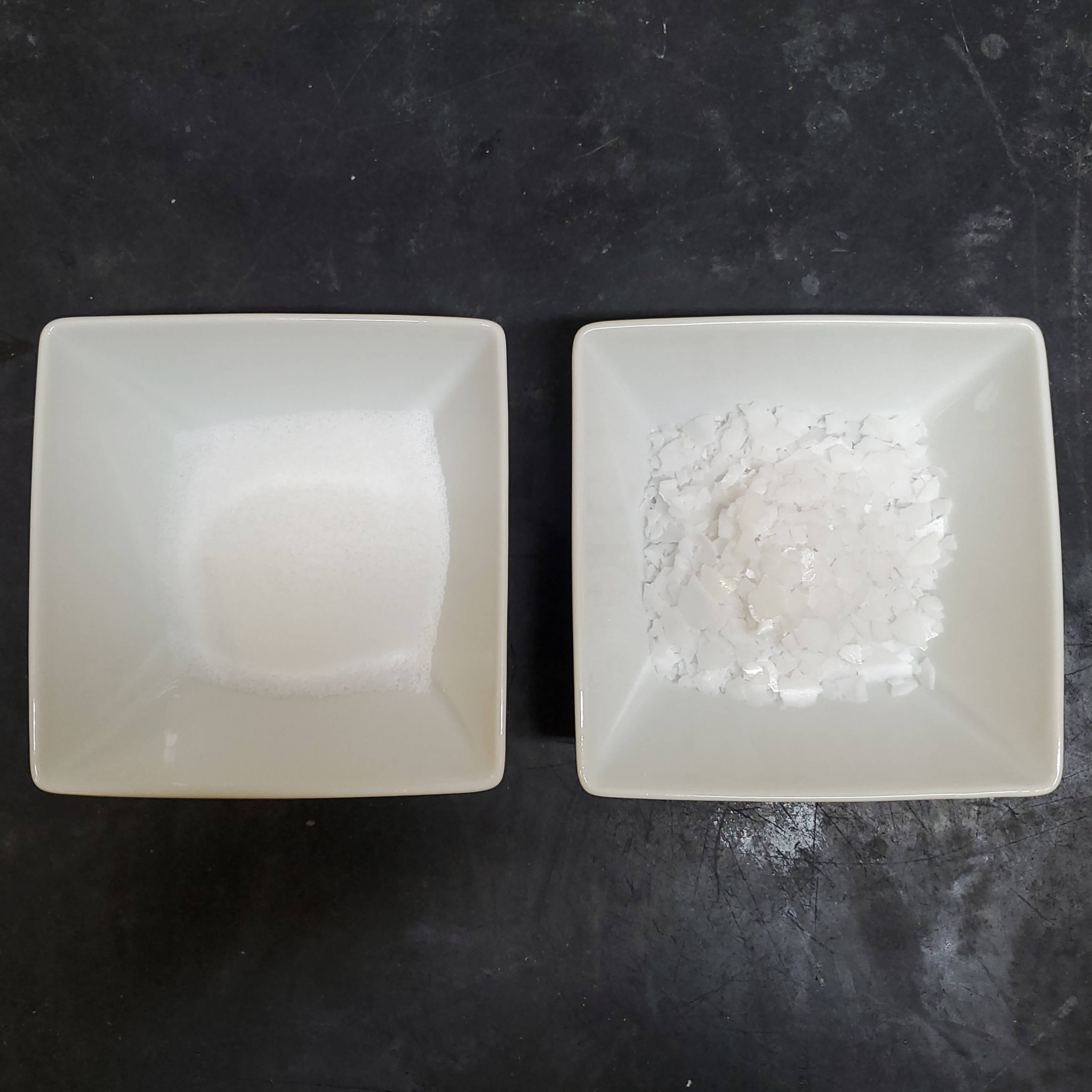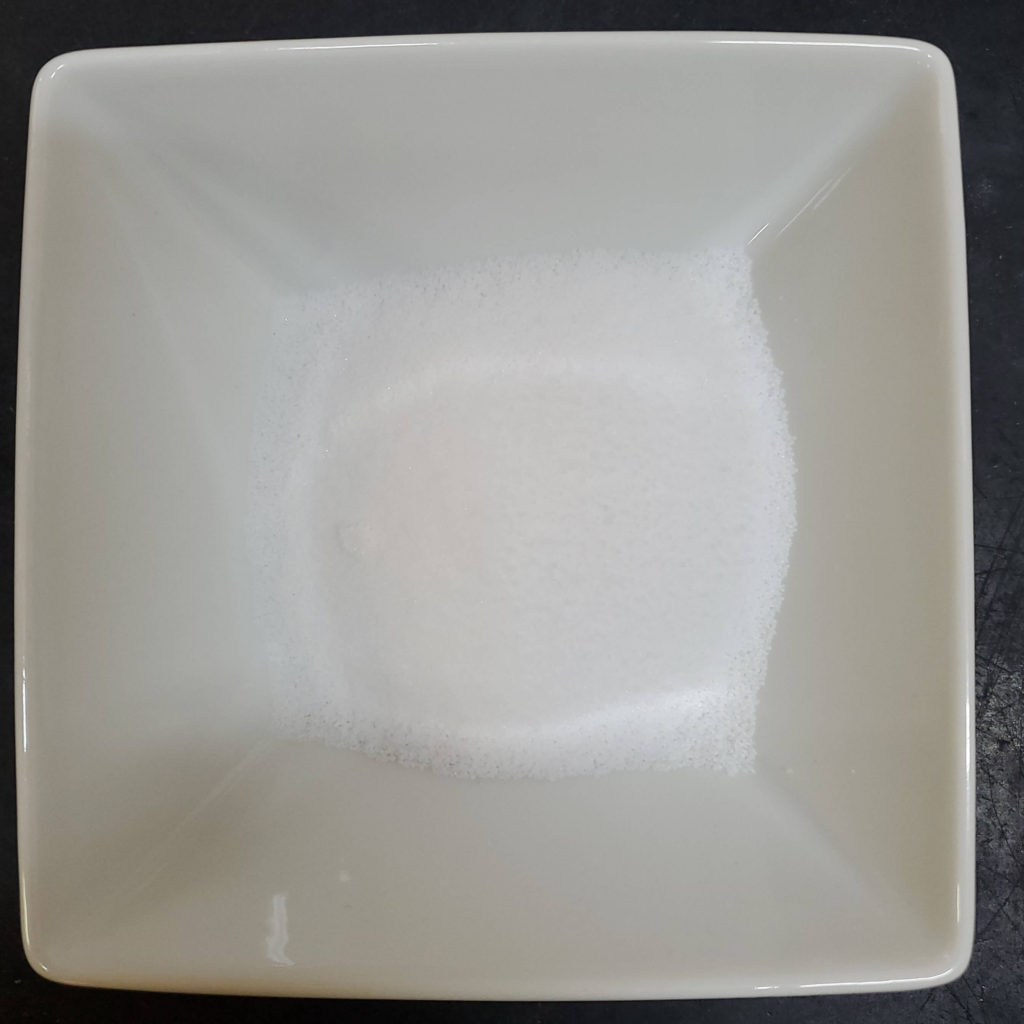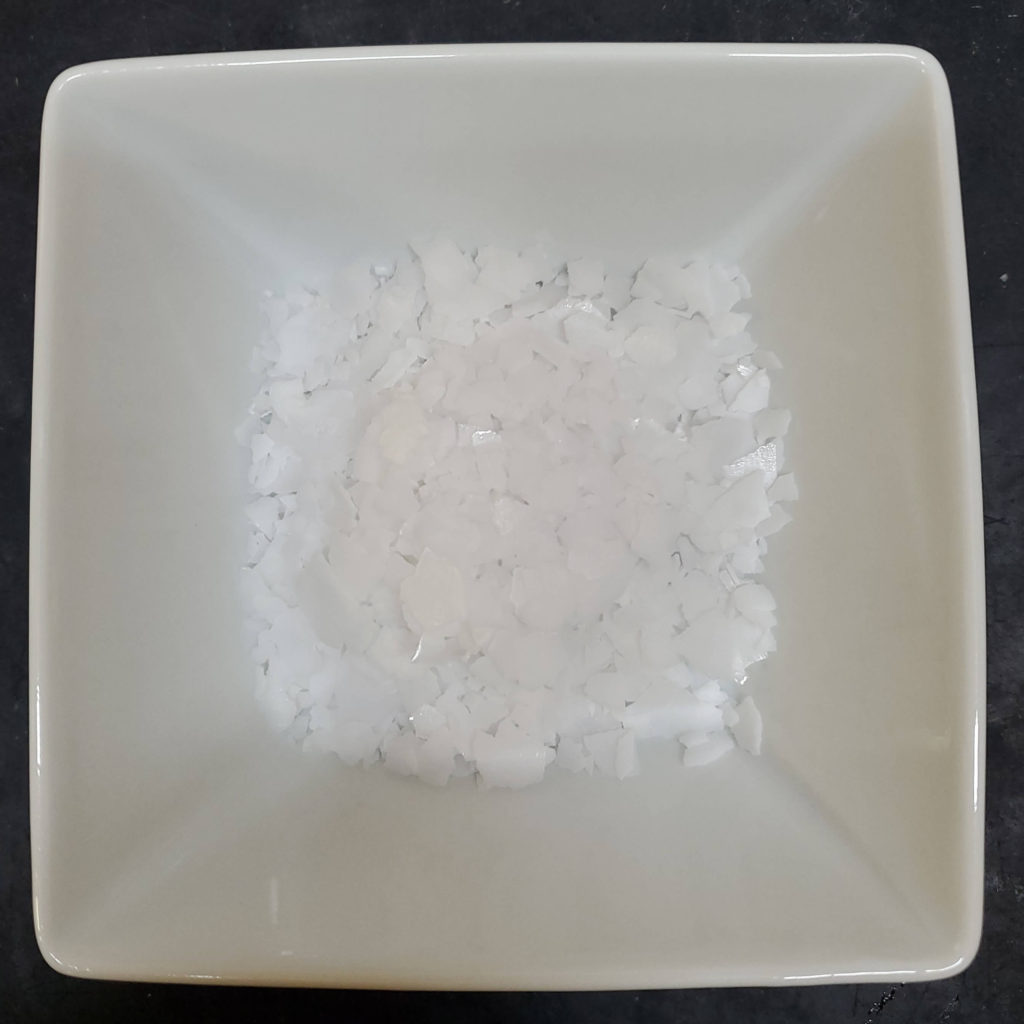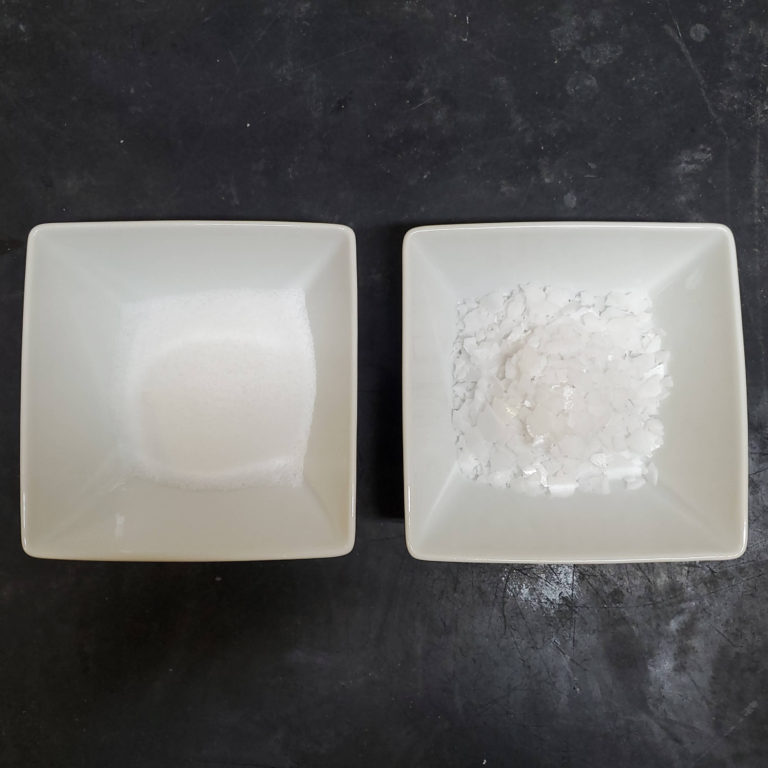Top FAQs about lye in our soap.
Yes, we make our bar soaps with the cold processed method using sodium hydroxide or caustic soda which is commonly known as lye. For our liquid soaps and shampoos we use potassium hydroxide or caustic potash which is another form of lye.
The short answer is No. In properly made soap all of the lye has reacted with the water and oils to create soap that is the right ph to clean your skin without irritating it. This process of this reaction is called saponification. If the soap has not been properly made or perhaps not cured long enough then the soap may feel irritating to your skin, but it would generally not be dangerous. Pure lye, itself is a caustic substance and should be treated with respect as it can inflict serious burns on your skin. That is why soapmakers usually wear protective gear when making soap.
The short answer to this is Yes. Lye soap is typically handmade soap and handmade soap if made properly is Great for your skin! In order to clean well soap should be slightly above neutral on the alkaline side. However, if the soap is too alkaline it can irritate your skin. This is part of where the benefit of handmade soap comes in. Handmade soap keeps the glycerin in the soap instead of extracting it as commercial soaps do. Glycerin is a humectant which means that it attracts moisture to your skin. So with handmade lye soap you get the best of both worlds – a soap that gently cleans well with glycerin as part of it to help moisturize your skin!
Is Susan’s Soaps lye soap?
“Is your soap lye soap?” We hear that question often. The short answer is Yes. We make handmade soap and traditional handmade soap is made with lye. The more accurate answer is a bit more detailed. (Note: There are some people who create soap using the melt and pour method which doesn’t involve them using lye.) People often envision me stirring a big cauldron of soap over a fire like it was done years ago. However, we are at a different point today. The lye we purchase is very pure and even certified at a certain purity. We have an indoor soap shop and we stir our soaps with very large stick blenders.
Two different types of lye

We do use two different types of lye depending on whether we are making bar soaps or liquid soaps and shampoo. I am not a chemist so I can’t tell you the exact chemical reason why you have to use sodium hydroxide for solid bars and potassium hydroxide for liquid soaps. I just know that you do. They are both caustic and essentially different forms of lye. For both, you need to be precise in your formulation so that the final product works well for cleaning and lathering and yet is gentle and not harsh or drying on your skin.

As you can see in the photos, potassium hydroxide is in much larger flakes as opposed to sodium hydroxide which is a fine granular form similar to salt. When working with them the sodium hydroxide is much more likely to fly around so you need to be very careful so that nothing can blow it somewhere it shouldn’t be. I don’t worry as much about potassium flakes drifting where they shouldn’t go. However, I am more cautious when mixing potassium hydroxide as it gets hotter than the caustic soda.
Cautions when working with lye
No matter which type of lye you are working with you need to wear protective gear: rubber gloves, long sleeve shirt, long pants, shoes, protective goggles. Note: I ended up in the emergency room with 3rd-degree burns on the tops of my feet when I had a bad lye spill years ago. You also need to always, always add your lye to your liquid, NEVER the other way around. By adding the lye to the liquid you can control the reaction. If you add the liquid to the lye you could end up with an eruption on your hands.
I have been making soap for over 20 years. I started with solid bars and eventually added liquid soaps and shampoos. For each product, there was a learning curve. It takes time and effort to get your formula and the steps to your method figured out. Just take proper precautions and enjoy the process.
Find out more about How Soap Is Made.
Links to our different types of Soap.
Please take a minute and browse our shop to see the many soap and shampoo options we have to offer.
Natural Shampoo – Bars, Liquid, and even some for your dog!

